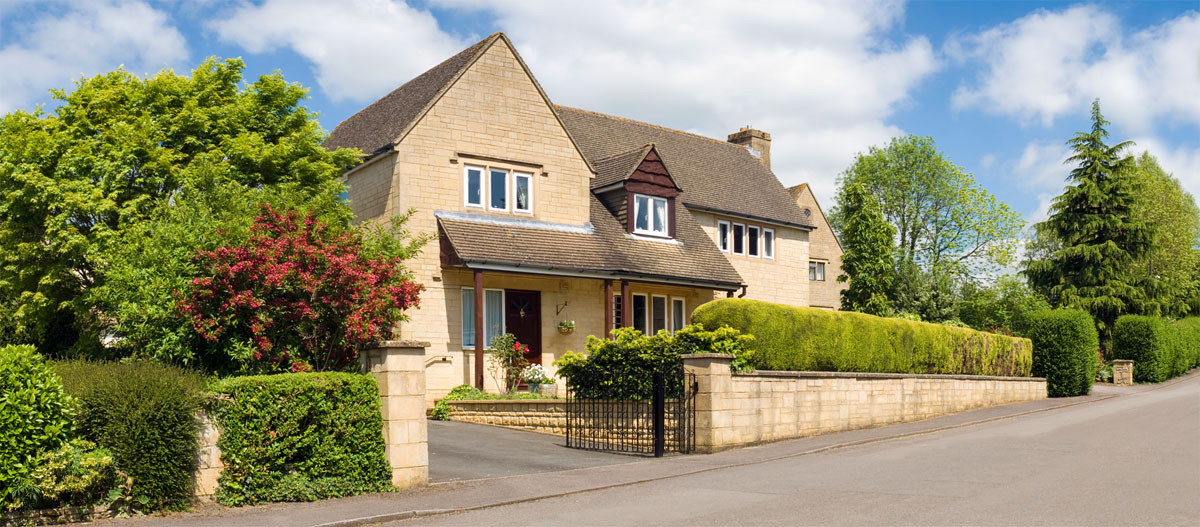How Long Does it Take to Sell a House? Average Time and Tips for a Quick Sale
The time it takes to sell a house can vary depending on factors such as market conditions, property location, asking price, and property condition.
How Long Does it Take to Sell a House? Average Time and Tips for a Quick Sale
As of March 2023, the average time it takes to sell a house is 54 days according to Rocket Homes. However, the time it takes to sell a house can vary depending on factors such as market conditions, property location, asking price, and property condition. To expedite the home sale process, proper preparation of the property before listing, including repairs and renovations if necessary, as well as finding the right real estate agent can greatly impact the speed at which a home is sold.

Average Time to Sell a House
When it comes to selling a house, one common question that arises is: How long does it take? The average time a house stays on the market can vary depending on various factors. In 2023, according to statistics from Realtor.com, the average time a house stays on the market is 83 days. This includes the time it takes for a house to go from active to under contract, along with an additional 30-49 days typically required for financing approval. It’s important to note that this average can vary based on location and market conditions.
For instance, in highly competitive markets where demand outweighs supply, houses may sell much quicker than in areas where there are fewer buyers or higher inventory levels.
Understanding the average time it takes to sell a house provides insight into the broader discussion of market conditions and timing.
Market Conditions and Timing
The state of the real estate market and the timing of when you choose to sell your house play significant roles in how quickly you can expect to make a sale. Market conditions can greatly impact buyer demand and consequently influence the speed at which a house sells. If you find yourself selling during a seller’s market, where there is high demand and limited inventory, you may experience a faster house sale. Conversely, in a buyer’s market with more homes available than there are interested buyers, it may take longer to secure an offer.
Timing also plays an essential role in selling your home quickly. Factors such as seasonality and economic conditions can affect buyer interest. Spring and summer tend to be popular times for buying and selling homes as families often prefer to move during warmer months before the start of a new school year. However, each local housing market may have its own nuances when it comes to seasonal patterns.
Just like planning an outdoor event, choosing the right time to sell your house is crucial. You wouldn’t want to hold a pool party in the middle of winter when fewer people are interested, but instead, you’d select a date during summer when the weather is ideal and attendance is likely to be higher.
As we explore the factors impacting the speed of selling a house, it’s important to consider additional elements like the condition of the home, current mortgage rates, and pricing strategies.
- As of March 2023, the average time to sell a house is 54 days according to Rocket Homes.
- A study conducted by Zillow found that houses sold in early May typically stay on the market for 18.5 fewer days than average and often fetch slightly higher prices.
- Research from the National Association of Realtors indicated that staging can speed up the sale process, with nearly one-third of buyers’ agents stating that staged homes spend significantly less time on the market.
Factors Impacting Sale Speed
When it comes to selling a house, several factors can significantly impact the speed of the sale. Understanding these factors can help sellers strategize and make informed decisions throughout the process. Some key factors to consider include market conditions, number of days on the market, asking price, property condition, and property location.
For instance, suppose you’re trying to sell your house in a buyer’s market where there are more homes available than buyers. In such a situation, it might take longer to find a buyer compared to a seller’s market where demand outweighs supply. Similarly, the number of days your house has been listed can affect buyer perception and generate concerns about potential problems with the property.
Home Condition and Location
The condition of your home plays a crucial role in attracting potential buyers and speeding up the selling process. Buyers are typically looking for move-in ready homes that require minimal repairs or renovations. Therefore, it’s essential to prepare your home by addressing any necessary repairs or upgrades before listing it for sale.
Start by conducting a thorough walkthrough of your property and assessing its condition objectively. Look out for any glaring issues such as leaky faucets, peeling paint, or malfunctioning systems. Fixing these problems will not only improve the overall appeal of your home but can also prevent potential buyers from being deterred by visible defects.
Think of preparing your home for sale as getting dressed up for an important event. You want to present yourself in the best possible way to leave a lasting impression.
In addition to addressing repairs, decluttering and minimising personal belongings can create a more inviting space for potential buyers. Removing excess furniture, organising storage areas, and deep-cleaning can go a long way in enhancing the overall presentation of your home.
The location of your property also influences its marketability and the speed of the sale. Factors such as proximity to amenities, quality of schools, neighbourhood safety, and local attractions can influence a buyer’s decision-making process. While you can’t change the location of your home, highlighting its positive aspects and unique features can help attract interested buyers who value those specific attributes.
The condition and location of your home are critical elements that potential buyers consider when making their purchasing decisions. By addressing any necessary repairs or upgrades and effectively showcasing the desirable qualities of your property, you can significantly increase the chances of selling your house quickly.
Real Estate Agent’s Role
When it comes to selling a house, the role of a real estate agent is invaluable. They bring expertise, market knowledge, and negotiation skills to the table, helping you navigate the complexities of the selling process. From listing your property to closing the deal, an experienced agent can ensure a smooth and successful transaction.
A real estate agent takes on various responsibilities during a home sale. They help you determine an appropriate listing price based on comparable properties in the area and market conditions. Their marketing strategies are designed to attract potential buyers and generate interest in your property. Agents also coordinate showings and open houses, handle negotiation with buyers to get you the best possible offer, and guide you through the intricate paperwork involved in closing a sale.
Think of a real estate agent as your trusted captain navigating the rough waters of the housing market. They have the knowledge, skills, and experience to guide you safely to your destination – a successful home sale.
Choosing the Right Agent
Selecting the right real estate agent is crucial for a quick and efficient sale. With so many options available, how do you ensure you find an agent who aligns with your goals and has the expertise needed to achieve them? Here are some considerations when choosing your agent:
- Experience: Look for agents with a proven track record in selling homes similar to yours. An experienced agent will have extensive market knowledge, negotiation skills, and a network of potential buyers.
- Local Knowledge: Choose an agent who possesses in-depth knowledge of your local market. They should be familiar with neighbourhood trends, pricing patterns, and have connexions within the community.
For instance, if you’re selling a historic home in downtown Charleston, South Carolina, finding an agent who specialises in historic properties within that area would be beneficial due to their understanding of local regulations and buyer preferences.
- Communication Skills: Effective communication is key to a successful partnership with your agent. They should be accessible, responsive, and able to clearly convey information and updates.
- Marketing Strategy: Inquire about the agent’s marketing strategy for selling your home. How will they showcase your property to potential buyers? Do they utilise professional photography, online advertising, or other innovative techniques?
- Rapport: Building a good rapport and trust with your agent is essential. You’ll be working closely together throughout the selling process, so it’s important to establish a positive and collaborative relationship.
By taking these factors into consideration, you can find an agent who will actively work towards achieving your goals and ensure a smooth and timely sale of your property.
Strategies for a Quick Sale
Selling a house can be a time-consuming process, but there are several strategies you can implement to help expedite the sale. One of the most important steps is to hire the right real estate agent who understands the local market and has a proven track record of selling homes quickly. They will work with you to develop a comprehensive marketing plan and set an appropriate listing price that attracts potential buyers.
Next, it’s crucial to prepare your house for sale. This involves making necessary repairs, upgrades, and improvements to enhance its appeal to prospective buyers. Consider decluttering and minimising personal belongings to create a clean, spacious environment that allows potential buyers to envision themselves living in the space.
Professional listing photos are another essential element in attracting buyers. High-quality images that highlight the best features of your property can make a significant difference in generating interest and increasing the likelihood of a quick sale. Investing in professional staging services may also help showcase your home’s full potential and create an inviting atmosphere for potential buyers during open houses or private showings.
Furthermore, understanding the local market conditions and timing your listing strategically can significantly impact the speed of your sale. Research shows that early May is generally considered the best time to sell a home when properties tend to sell fastest and at higher prices due to increased buyer activity.
For instance, let’s say you’re planning to list your house in late April. By waiting just a couple of weeks until early May, you might be able to capitalise on the surge in buyer demand, resulting in a faster sale and potentially higher offers.
In addition to these strategies, effective negotiation skills can also facilitate a quick sale. Once you receive offers from potential buyers, it’s crucial to carefully consider each proposal and work closely with your real estate agent to negotiate terms that align with your goals.
Remember, though, that every situation is unique, so what works for one seller may not work for another. It’s essential to assess your specific circumstances, consult with professionals, and tailor strategies accordingly. The right combination of these tactics, along with a little bit of patience and perseverance, can increase your chances of selling your house quickly.



